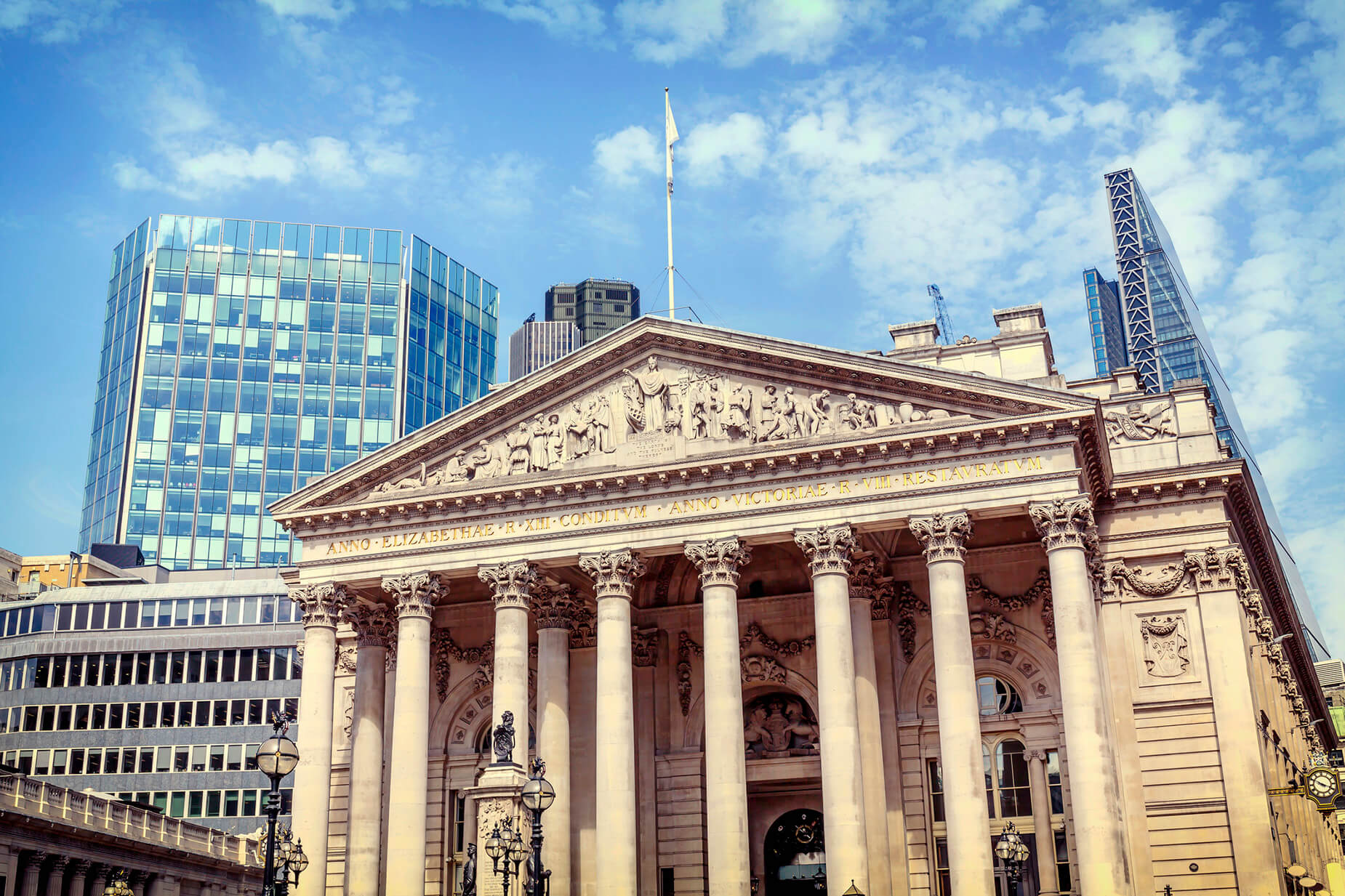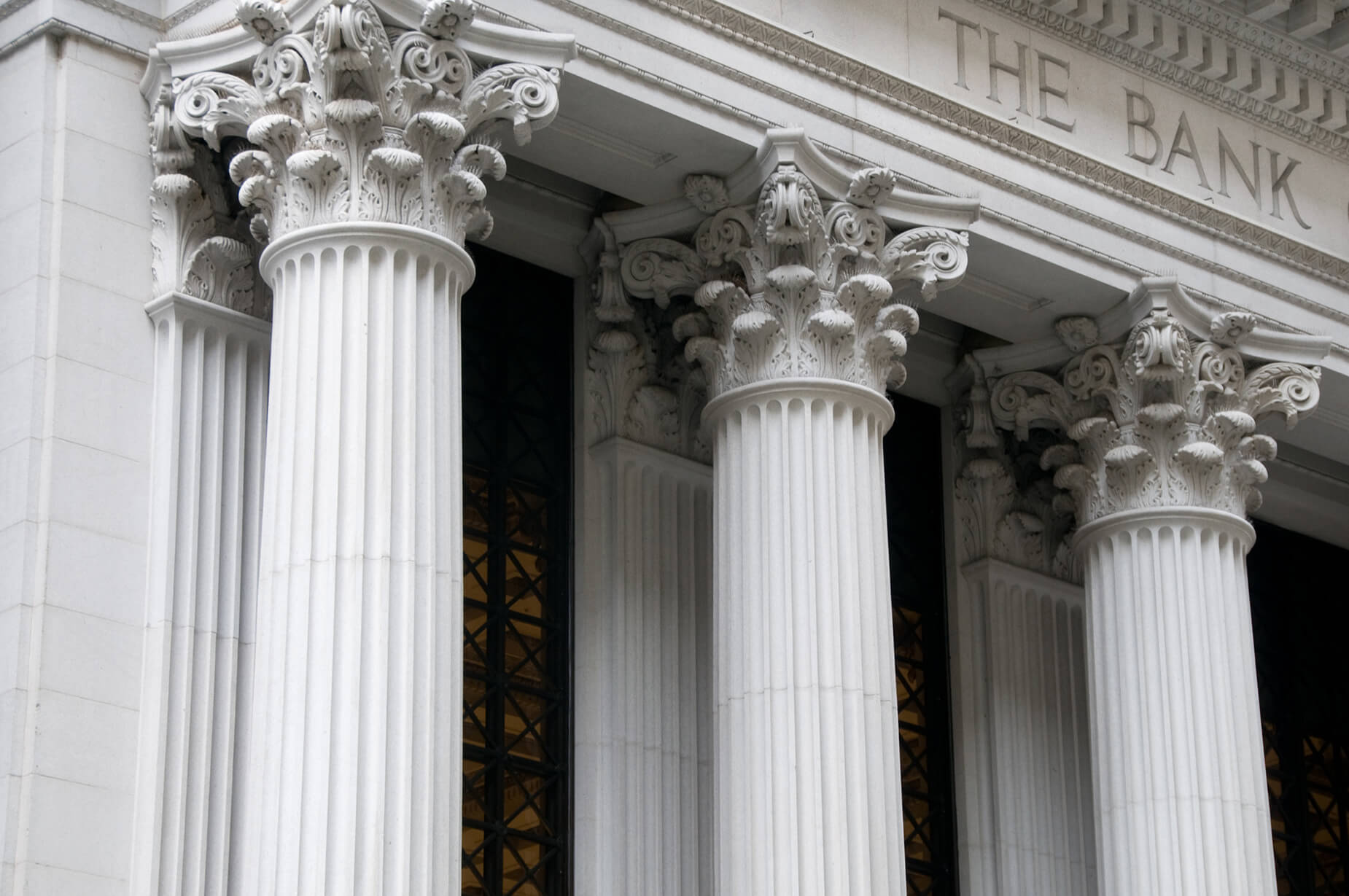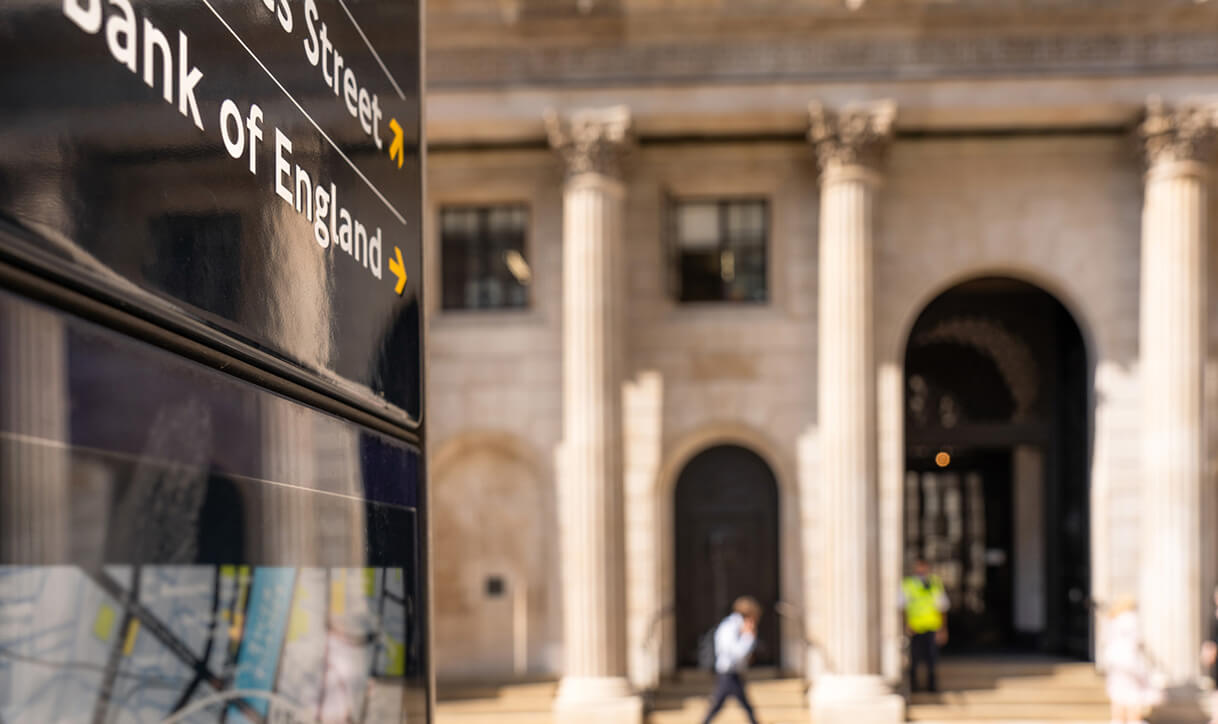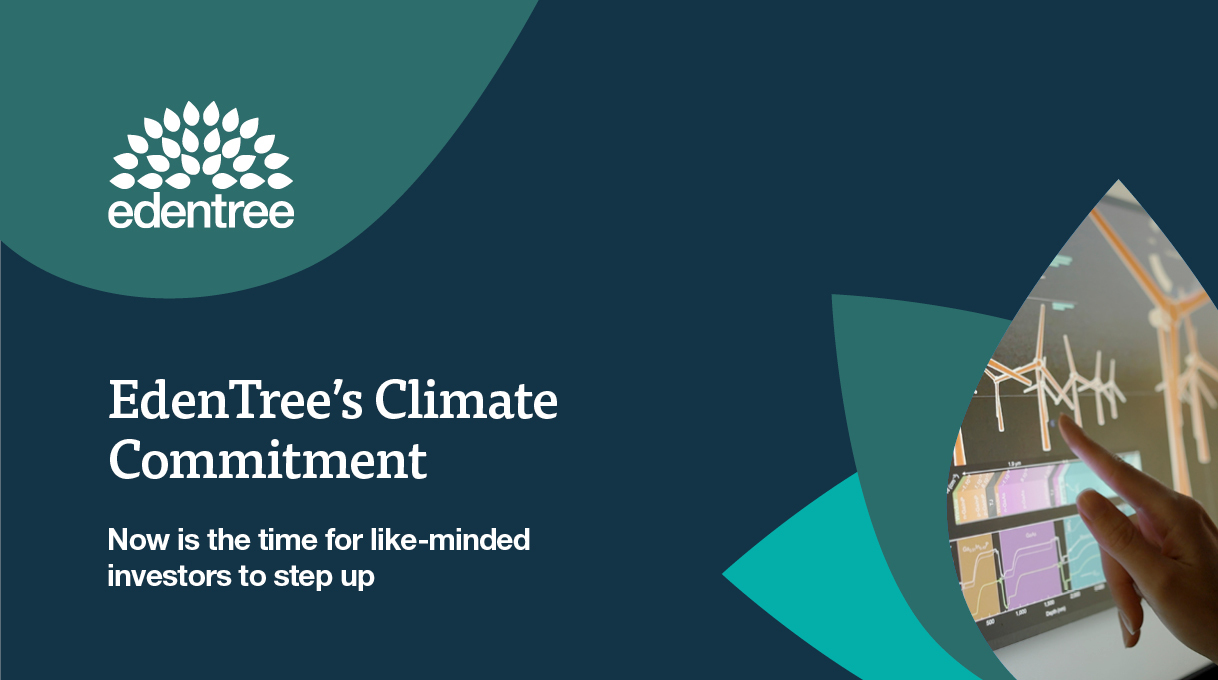The EdenTree range of screened Responsible & Sustainable Funds hold over 250 different instruments across their portfolios. As well as having a compelling investment case, each instrument must be researched and approved by the RI team. Banks are seldom out of the news, with the whole sector brought low by multiple ethical scandals. In this RI Expert Briefing we outline our views on Banks, and whether there is still a case for them as responsible investments.
WHY ARE WE DISCUSSING BANKS?
We are sometimes asked by clients for our views on the banks in light of the long shadow cast by their involvement in causing the financial crisis in 2008. Banking’s exposure to fossil fuel financing and its contribution to environmentally intrusive projects also raises concern. It is therefore legitimate to ask whether banks can continue to be viewed as ‘responsible’ and suitable for inclusion in our range of screened Funds.

AREN’T BANKS ALL THE SAME?
Although they each provide financial services, the banks vary in terms of their focus. For instance in the UK, Lloyds Banking Group (which operates several brands: Lloyds Bank, Halifax, Bank of Scotland and Scottish Widows) is focused almost exclusively on domestic mortgages, retail banking, insurance and small business loans. Barclays has a strong UK retail presence but is also a global investment bank, HSBC is a major global presence in 64 countries with its historic roots in Hong Kong and Asia. Other banks, such as Morgan Stanley, JP Morgan and Goldman Sachs are focused on global investment banking and securities management, with little or no retail exposure.
DO INVESTMENT BANKS PRESENT MORE ETHICAL CHALLENGES?
Not necessarily. In the UK, despite its ‘vanilla’ retail activities, Lloyds Banking Group has been the most exposed to PPI (Payment Protection Insurance) mis-selling, incurring fines and penalties of over £22bn.1 Most of the banks, whether retail or investment, have been implicated in behaviours such as money laundering, sanctions busting, LIBOR manipulation and tax fraud, that have fallen far short in terms of good conduct.
It is estimated that since 2008 banks collectively have paid out $321bn in fines and penalties with US banks accounting for 63% of the total ($204bn).2 Bank of America has been the most heavily fined bank individually, with $82.9bn in fines.3
DOES THIS MAKE THE WHOLE SECTOR POTENTIALLY UNETHICAL?
Banking and wider financial services provide the vital infrastructure that allows the modern economy to function. Whether it is business banking, mortgage products, savings and investments, credit and debit cards, loans or current accounts, the banks are at the heart of an efficient modern economy. They therefore have high social utility and value for nearly every adult individual and enterprise in society. We do not therefore view banking or the provision of financial services as intrinsically unethical. However unethical culture and behaviour has damaged the reputation of the sector and its perception as socially useful. This is why ‘challenger’ banks such as Metro, Starling and Monzo, have been encouraged in order to instil a new dynamic in customer centric banking.
HOW DOES EDENTREE VIEW THE SECTOR?
We draw a distinction between the indispensable economic function the banks provide – the lubricant of modern economic activity – and the unacceptable, multiple breakdowns in probity and trust among the more risky activities. We therefore view banking as legitimate for inclusion in the screened Funds.
These considerations make much of the sector unattractive. Well capitalised regional emerging market banks in areas such as Hong Kong and Singapore have largely avoided most of the ethical and financial scandals exhibited in the West and present a more positive outlook financially and ethically. We have exposure to a number of the better capitalised and well managed banks in these regions.
In Europe, we have avoided the more distressed banks, preferring well capitalised, well run institutions such as Banco Santander and Dutch bank ING. The screened Funds have no exposure to the US investment bank sector such as Morgan Stanley, JP Morgan, Bank of America or Goldman Sachs, and we have avoided the most scandal-hit Australian banks. Our R&S Sterling Bond Fund holds Bonds issued by the mutual Building Society sector, such as The Nationwide, Leeds and Nottingham that provide valuable diversification and access to this well-regarded sector. Whilst the mutual sector has not escaped entirely without criticism, it has, by and large, capitalised on public discontent over the High Street lenders by maintaining a strong community presence, and products and services well suited to their customers. In our equity Funds we hold around 15 financial institutions in Europe and Asia, the latter including Hong Kong based Dah Sing Bank, and DBS Bank of Singapore.
WHAT ARE THE ETHICAL ISSUES SURROUNDING BANKS?
Banking, by its nature relies on trust. Trust operates at many different levels, from basic security of data and customer funds, to the appropriate and responsible targeting and sale of products and services to customers. Banks have suffered severe service ‘outages’ in which data protection has been compromised. The industry has also become engulfed in many different financial scandals requiring compensation and remediation on an enormous scale. 15years on from the financial crisis, it is clear that regulatory pressure, greater capital liquidity requirements and public opprobrium have collectively had an effect in changing culture and behaviour. Government has re-emerged as a material influencer and stakeholder as well in some cases as majority owner.
Other issues for responsible investors include social indicators such as financial exclusion, customer service, responsible lending practices, tax visibility, access to banking services in rural areas, digital exclusion and excessive executive pay. We also consider the banking sector’s role in financing climate change to be of increasing importance, and we explore this below.

DOES THAT MEAN THE ETHICAL SCANDALS ARE NOW BEHIND US?
Legacy issues are still working through with some financial institutions, such as Wells Fargo still under sanction for earlier misdemeanours; some are still to settle potentially significant penalties with US and EU regulators, for instance Bank of Ireland, and others such as Danske Bank and Swedbank have become mired in new money-laundering scandals. However, the number of new issues have generally reduced and we are encouraged that commitments made by many banks to restore trust and improve behaviours within the sector seem to be working. We also welcome UN backed Principles for Responsible Banking, which provide a guidance framework to help banks to align with wider society’s expectations for a sustainable and ethical financial services market, and were launched in 2019. Today the UNEP backed Principles have over 270 banks signed up representing 45% of banking assets worldwide.4
![]()
WHAT ROLE DO THE BANKS PLAY IN CLIMATE CHANGE?
Banks continue to be dominant players in providing loan capital for fossil fuel projects which can act to frustrate a transition to a low carbon economy in line with the Paris Agreement. Many of the banks have developed polices whereby, over time, they have committed to withdrawing from the financing of new coal fired generation, however this ‘transition’ is far from complete, and often comes with exceptions and caveats. The Banks are, however, enablers of transition as significant lenders to the renewables and ‘green-energy sector.
Going forward banks will see increasing scrutiny of their loan books and whether they are aligned to a 1.5o scenario. Simply not financing the most polluting types of fossil fuel extraction and increasing commitments to finance renewables will not be enough. HSBC Holdings discloses its exposure to higher transition risk and has made a firm commitment to phase out thermal coal financing by 2040. ING through its Terra Approach measures the climate impact of its portfolio which explains how the CO2 equivalent intensity per sector of its portfolio compared to the market and to sector relevant climate scenarios. We have engaged extensively with the banks that we hold around climate risk, policies for exiting fossil fuel loan finance, and aligning risk with the TCFD (Taskforce on Climate-related Financial Disclosures) methodology.
We are part of a collaborative investor group sponsored by IIGCC (Institutional Investors Group on Climate Change) that sets out our expectations of companies, particularly engaging with Royal Bank of Canada and ING. We have also signed up to the Investor Expectations for the Banking Sector.
We are also seeing an increase in the number of shareholder and bank sponsored resolutions on climate change being put to company AGMs. In 2021 we supported climate related resolutions at Barclays and HSBC Holdings in the UK.
WHAT ABOUT PROJECT FINANCE?

Whilst the banking sector’s direct environmental impacts are relatively modest, and relate in the main to managing their energy, water and waste across their extensive branch and office networks, of more significance is the role banks play in providing loan finance for infrastructure projects and their impact on communities and the environment. We look to ensure the banks we invest in are signatories to the Equator Principles, a risk-management framework for assessing environmental and social risk in large-scale projects. 128 global financial institutions located in 38 countries5 representing the majority of global project finance within developed and emerging markets have signed up to the framework. We expect as a minimum banks we invest in to be signatories and to report on their adherence to the framework principles.
HOW DOES EDENTREE ENGAGE WITH THE BANKS?
Given our House view that banking is not subject to exclusion but that culture has been poor, we have engaged on business ethics behaviour in particular. We also address material issues pertinent to the industry; in particular, we engage on ESG (environmental, social and governance) impacts including project finance (The Equator Principles, fossil-fuel lending), financial inclusion and executive pay. We have taken a robust approach to executive pay in the banking sector, believing that escalating pay has been to the detriment of shareholders and society. In 2021, we opposed the Remuneration Policies and Remuneration Reports of the UK listed banks that we hold including the Nationwide Building Society, as being excessive or poorly linked to performance; we supported remuneration at some of the smaller building societies such as the Nottingham, Skipton and Coventry. In all cases we opposed the ‘fixed pay allowances’ the banks introduced in order to circumvent EU bonus caps, which we view as inappropriate.
WHAT SHOULD WE LOOK FOR IN A ‘RESPONSIBLE BANK’?
Banks do present complex ethical challenges for responsible investors, but should not necessarily be seen as inappropriate holdings. Banks command enormous social utility and in many ways demonstrate policies and basic products in tune with the needs of their retail and commercial customers. Banks have been at the forefront of financing a vibrant enterprise culture, much of it focused on clean energy and other solutions-based technologies, and as the world transitions to a low-carbon future, the banks will have a pivotal role to play in facilitating long-term capital flows. Regulated and sufficiently capitalised banks should be seen as a public good!

They have however been heavily implicated in practices that fall well short of that required by regulators and society. Weak product innovation and mis-selling, poor customer service and in some areas criminal activity has left trust in the sector reeling. There is evidence that the sector is at last renewing itself, with a new focus on delivery, integrity and putting the customer first. Responsible investors have a critical role to play engaging with the banks to put integrity and business ethics at the heart of what they do. A commitment to treating customers fairly and developing products and services that have benefit and utility at their core with appropriate risk is a fundamental requirement. Banking practices that may be deemed predatory or usurious or which deceive the intended purchaser, or construct artificial tax avoidance schemes are generally avoided.
Products and services that emphasise sustainability and responsible finance should be seen as preferable. Banks need to renew efforts to demonstrate their contribution to the public good: ambitious goal oriented programmes focused around health, education and financial literacy help deliver respect, renewal and trust. Whilst there is no ‘perfect bank’, we will look for institutions that appear to be attentive to these principles and we will engage individually and collectively to affirm an ethical approach is taken.
Sources
- www.lloydsbankinggroup.com Annual Report 2020
- www.reuters.com Article dated 2 March 2017
- www.nasdaq.com Article 15 February 2021
- www.www.unepfi.org UNEP Principles for Responsible Banking
- equator-principles.com





